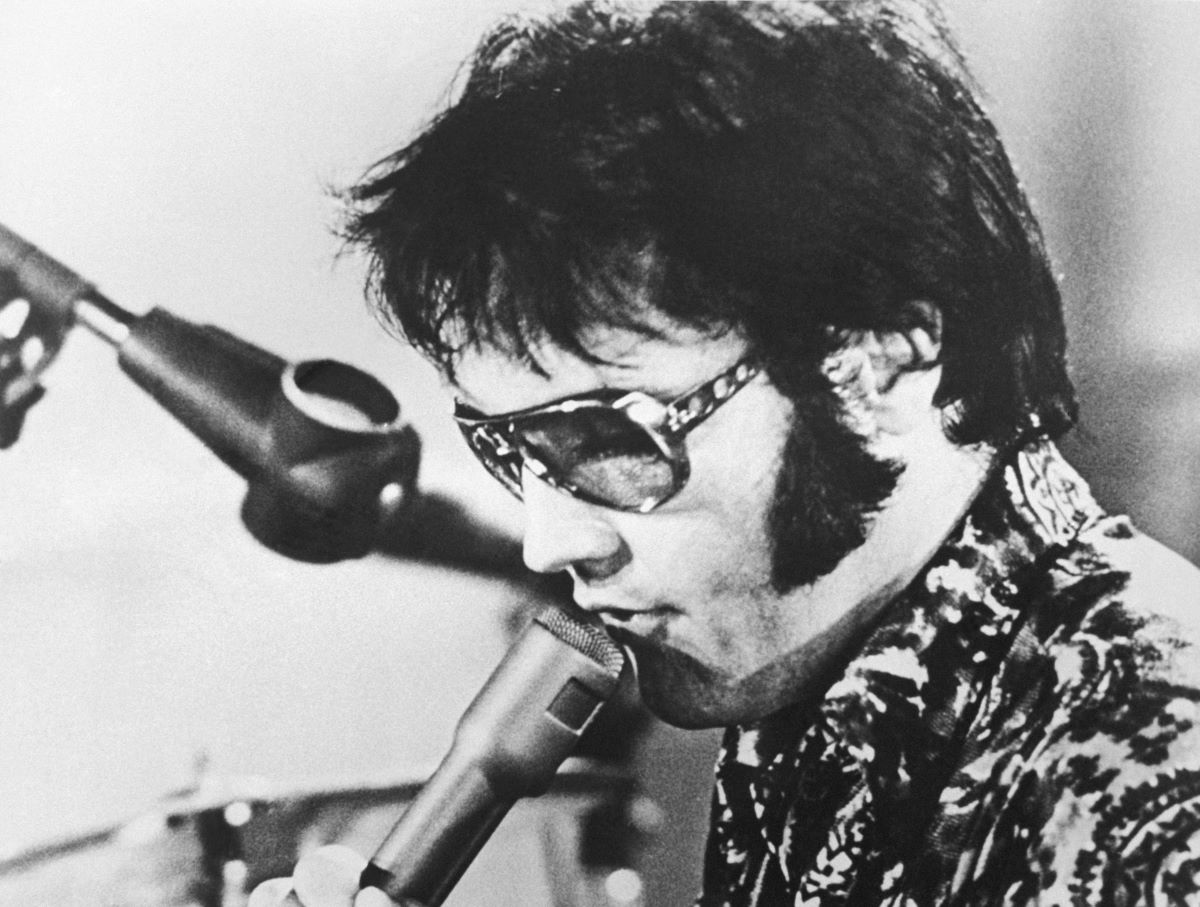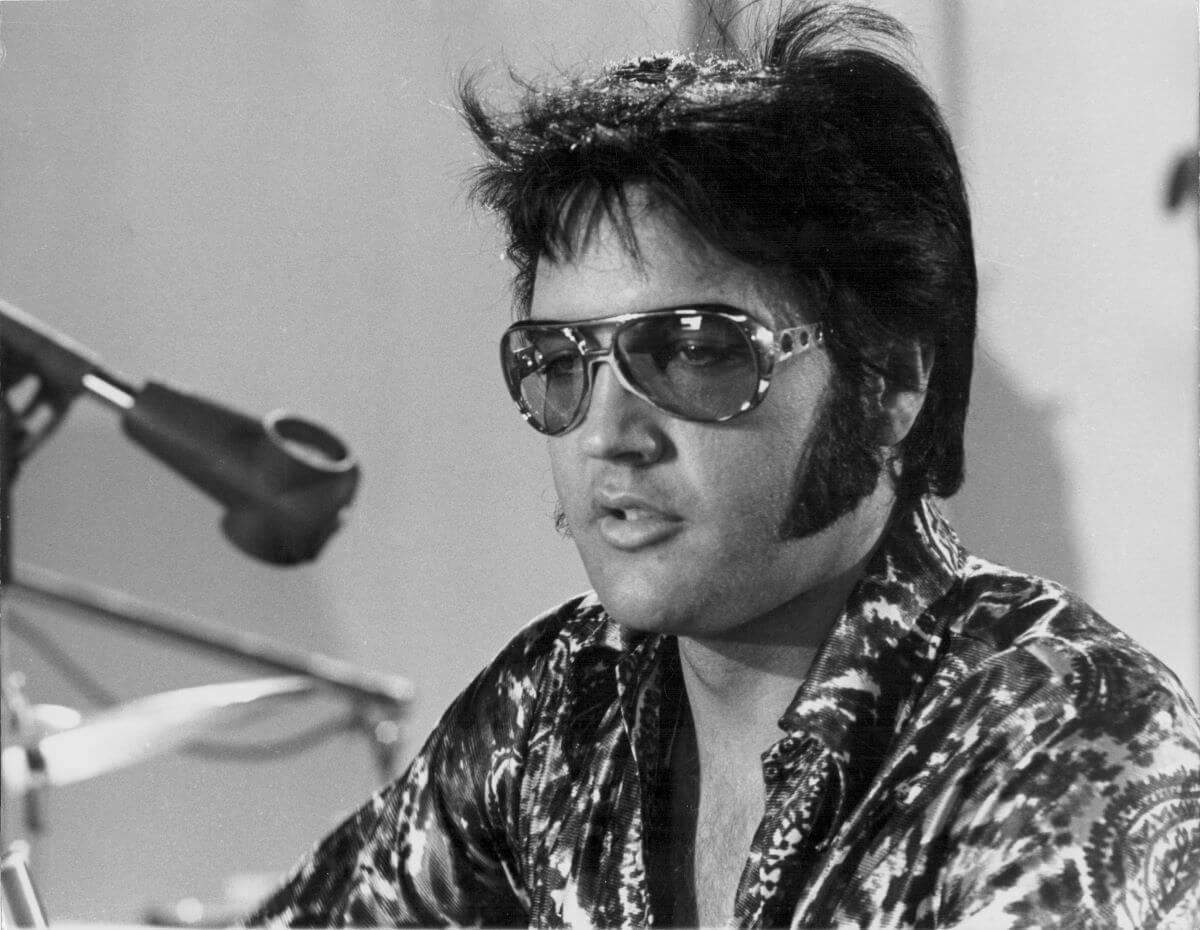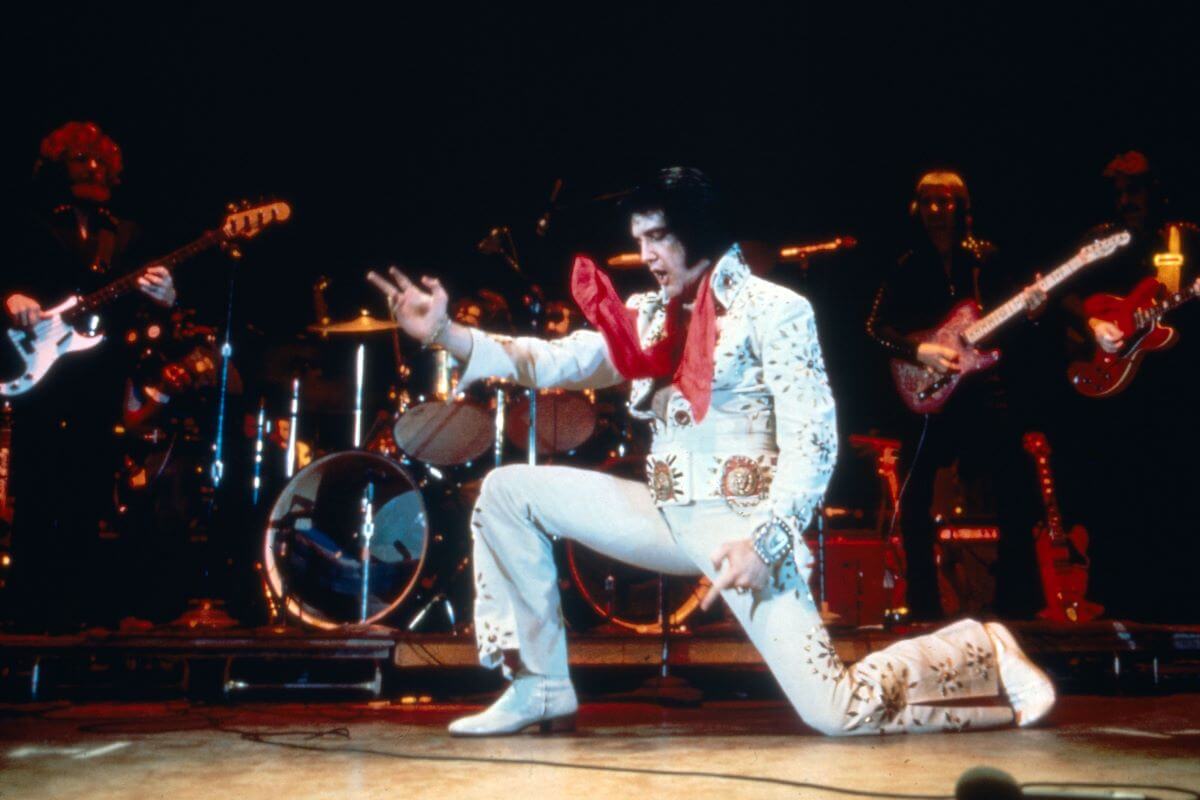
Elvis’ Hero Wouldn’t Have Wanted to Meet With the Musician Because of His ‘Exotic’ Appearance
Over the course of his years in the spotlight, Elvis Presley’s appearance and behavior drew criticism. When he rose to prominence in the 1950s, many worried that Elvis was a negative influence on young people. Though this concern lessened over time, particularly as other, more controversial groups rose to prominence, Elvis’ appearance still rankled some people. This included the person Elvis saw as the greatest living American, J. Edgar Hoover.
According to an FBI agent, J. Edgar Hoover wouldn’t have liked Elvis’ appearance
In 1970, Elvis visited the FBI headquarters in Washington D.C. with the hopes of seeing Hoover.
“Presley indicated that he has long been an admirer of Mr. Hoover, and has read material prepared by the director, including Masters of Deceit, A Study of Communism, as well as J. Edgar Hoover on Communism,” FBI agent M.A. Jones wrote in a memo, per the Washington Post. “Presley noted that in his opinion no one has ever done as much for his country as has Mr. Hoover, and that he, Presley, considered the director the ‘greatest living American.'”

Hoover was not in the city when Elvis visited. According to Jones, though, he would not have wanted to meet with Elvis if he’d been available.
“Presley’s sincerity and good intentions notwithstanding, he is certainly not the type of individual whom the director would wish to meet,” he wrote. “It is noted at the present time he is wearing his hair down to his shoulders and indulges in the wearing of all sorts of exotic dress. A photograph of Presley clipped from today’s (Dec. 30, 1970) Washington Post is attached and indicates Presley’s personal appearance and manner of dress.”
J. Edgar Hoover received a letter about Elvis’ appearance and behavior
Years earlier, Hoover received a note of warning about Elvis. A former member of the Army Intelligence Service believed Elvis was a “definite danger to the security of the United States.” The letter writer described the pandemonium at a 1956 Elvis concert and expressed his belief that Elvis’ influence on his fans was dangerous.
“From eyewitness reports about Presley, I would judge that he may possibly be both a drug addict and a sexual pervert,” he wrote, per FBI Records: The Vault. “In any case, I am sure he bears close watch — especially in the face of growing juvenile crime nearly everywhere in the United States.”
Hoover responded, noting that while he appreciated the writer’s concern, the FBI could not make suggestions about legislative matters.
J. Edgar Hoover wrote Elvis a letter
Following Elvis’ visit to FBI headquarters, Hoover wrote the musician a letter. In it, he thanked Elvis for his unwavering support of the FBI.

“I regret that it was not possible for me to see you . . . during your visit to FBI headquarters; however I do hope you enjoyed a tour of our facilities,” he wrote. “Your generous comments concerning this bureau and me are appreciated, and you may be sure we will keep in mind your offer to be of assistance.”
Elvis was never able to meet with Hoover.


